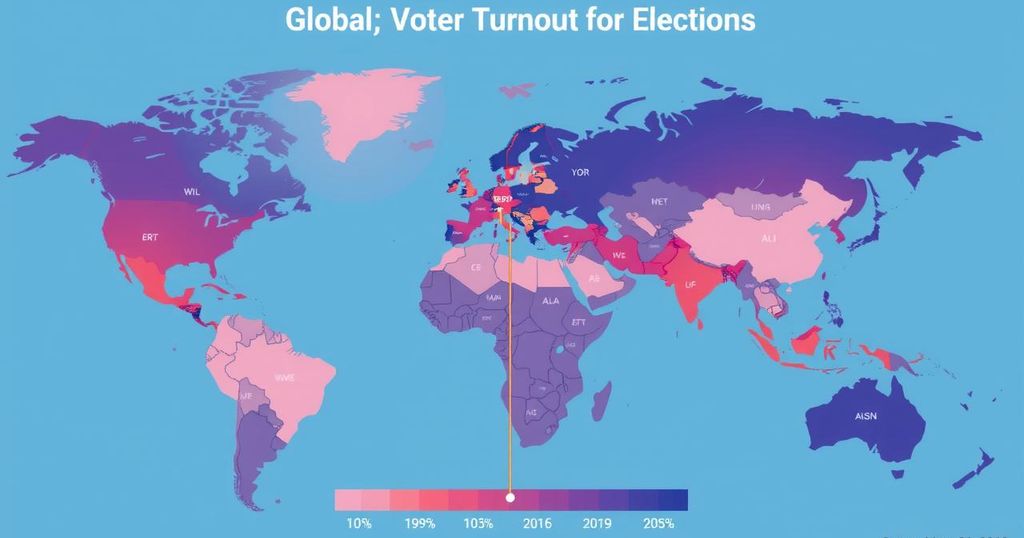Democracy in 2024: An Evolving Landscape Amid Economic Challenges

In 2024, nearly half of the global population voted in over 60 countries, indicating a significant moment for democracy. Economic issues dominated voter concerns, leading to the ousting of incumbents like President Biden and PM Modi. Electoral results revealed a shift towards self-interested voting amid broader societal challenges. Notable outcomes included Trump’s return to prominence and Macron’s electoral challenges, while authoritarian practices in Russia underscored the complexities of democratic processes.
In the unprecedented year of 2024, a substantial portion of the global population participated in democratic elections across more than 60 nations. This collective voting experience highlighted the evolution of democracy, yet also exposed continuing societal challenges. The elections reflected a trend where economic concerns overshadowed broader issues, leading to outcomes driven by fear, greed, and self-interest. Elections in countries such as India, South Africa, and the United States showcased the impact of economic dissatisfaction, resulting in the removal of long-standing incumbents, including President Biden and Prime Minister Modi.
Notably, the year witnessed distinct electoral performances, such as Donald Trump’s return to prominence in the U.S. and significant political shake-ups in Europe. French President Emmanuel Macron’s parliamentary gamble followed a disappointing EU election result, revealing the vulnerabilities faced even by established leaders. Meanwhile, Vladimir Putin’s overwhelming electoral victory in Russia exemplified the undermining of true democratic processes, as opposition figures faced severe repression.
As the world grapples with global economic pressures exacerbated by events like the COVID-19 pandemic and the conflict in Ukraine, the electoral choices made reflect a populace keen on immediate survival rather than long-term collective welfare. The year 2024 serves as a crucial reminder of democracy’s complexities and the significant influence one nation’s electorate can have on another’s political landscape.
The year 2024 marked a pivotal moment in global democracy, with unprecedented levels of electoral participation across numerous nations. This wave of voting was juxtaposed with pressing economic concerns, particularly in industrialized countries, where voters prioritized immediate personal needs over collective challenges, including climate change. The context of these elections is shaped by the long-lasting effects of the pandemic, rising inflation, and geopolitical tensions, notably in Ukraine, which have all contributed to evolving voter sentiments.
The elections of 2024 shed light on the ongoing evolution of democracy worldwide, despite revealing deep-seated issues regarding voters’ motivations. The outcomes indicate a trend towards rejection of incumbents driven by economic discontent rather than a genuine commitment to democratic ideals. As the global political landscape shifts, the implications of these elections will resonate beyond borders, underscoring the interconnectedness of countries and the significant influence of voter sentiment across nations.
Original Source: edition.cnn.com







